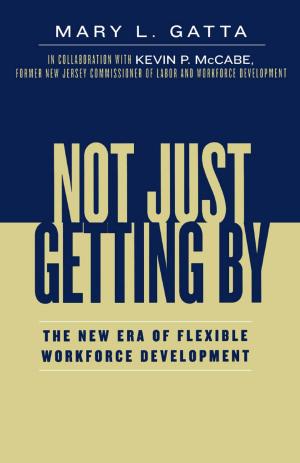Trust in the Capacities of the People, Distrust in Elites
Nonfiction, Social & Cultural Studies, Political Science, International, Foreign Legal Systems, Government, Democracy| Author: | Kenneth Good | ISBN: | 9781498502443 |
| Publisher: | Lexington Books | Publication: | October 15, 2014 |
| Imprint: | Lexington Books | Language: | English |
| Author: | Kenneth Good |
| ISBN: | 9781498502443 |
| Publisher: | Lexington Books |
| Publication: | October 15, 2014 |
| Imprint: | Lexington Books |
| Language: | English |
Democratization is a sociopolitical process and the society that may grow out of it
where people make decisions on matters affecting them. It is an unending struggle to win such rights and power, to hold and to extend them. The contending classes are essentially the poor and weak majority of the people and the elite of wealth, status, and power.
This book begins with the study of politics in democratic Athens 508-322 BCE, and how it revolved around the divisions between an uneducated poor majority of citizens and a small, wealthy elite. All citizens were deemed equally capable of holding political office, and life in democratic Athens was itself an education through the wide political experience a citizen necessarily acquired. The second study is of Britain’s centuries long and profoundly incomplete democratization, polarizing usually the urban poor, unequally against the Grandees, the oligarchy, and subsequent elites. A third exemplifier is South Africa, beginning in the 1970s-80s when two big processes were going on simultaneously: an external armed struggle led by the African National Congress (ANC), and a path-breaking domestic democratization represented by the United Democratic Front and the trade unions.
The democratization that emerges here is a matter of aspiration and impulse by determined men and women, which fail more often than they succeed, yet appear again in other times and places. Two main models of democracy are in contention. A representative from revolving around free elections, in which competing elites "get themselves elected" utilizing their wealth and celebrity. The liberal form achieved preeminence in Britain and the United States over some 150 years, but is now under serious threat from its own dysfunctionalities and the alienation of its citizens from its institutions and their elitist, self-serving values. And there is the participatory model, now being approached again since the mid-1970s in many places, from Portugal, Poland and Czechoslovakia, to South Africa, Tunisia, Egypt, and Iceland. Many such impulses will fail, but they offer hope, and on the record, immense satisfaction to their participants.
Democratization is a sociopolitical process and the society that may grow out of it
where people make decisions on matters affecting them. It is an unending struggle to win such rights and power, to hold and to extend them. The contending classes are essentially the poor and weak majority of the people and the elite of wealth, status, and power.
This book begins with the study of politics in democratic Athens 508-322 BCE, and how it revolved around the divisions between an uneducated poor majority of citizens and a small, wealthy elite. All citizens were deemed equally capable of holding political office, and life in democratic Athens was itself an education through the wide political experience a citizen necessarily acquired. The second study is of Britain’s centuries long and profoundly incomplete democratization, polarizing usually the urban poor, unequally against the Grandees, the oligarchy, and subsequent elites. A third exemplifier is South Africa, beginning in the 1970s-80s when two big processes were going on simultaneously: an external armed struggle led by the African National Congress (ANC), and a path-breaking domestic democratization represented by the United Democratic Front and the trade unions.
The democratization that emerges here is a matter of aspiration and impulse by determined men and women, which fail more often than they succeed, yet appear again in other times and places. Two main models of democracy are in contention. A representative from revolving around free elections, in which competing elites "get themselves elected" utilizing their wealth and celebrity. The liberal form achieved preeminence in Britain and the United States over some 150 years, but is now under serious threat from its own dysfunctionalities and the alienation of its citizens from its institutions and their elitist, self-serving values. And there is the participatory model, now being approached again since the mid-1970s in many places, from Portugal, Poland and Czechoslovakia, to South Africa, Tunisia, Egypt, and Iceland. Many such impulses will fail, but they offer hope, and on the record, immense satisfaction to their participants.















